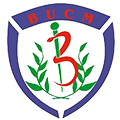Application Guide Without Service Fee Guide you how to apply for studying in Beijing University of Chinese Medicine & Study in bucm
Majors introduction
1. Traditional Chinese Medicine
Teaching language: Chinese
This program aims to train students to become Chinese medicine physicians with a systematic understanding of basic TCM theoretical knowledge, to be competent in professional knowledge and practical skills, and to be equipped with independent learning abilities. Graduates can engage in areas such as Chinese medicine treatment, health prevention and rehabilitative care, or Chinese medicine teaching, research, and administration in healthcare organizations.
Students will learn more than 2000 hours of compulsory Chinese Medicine courses and general education that is integrated throughout the curriculum.
Chinese medicine main courses include: Basic courses of Traditional Chinese Medicine (including Fundamental Theory of TCM, TCM Diagnosis, etc.); courses of the Classics of Traditional Chinese Medicine (including Shang Han Lun (Treatise on Cold Damage); Jin Gui Yao Lue (Prescriptions from the Golden Coffer) etc.); Basic Medical Courses (including pharmacology, pathology, etc.); Clinical courses of Traditional Chinese Medicine (including Chinese Internal Medicine, Chinese Gynecology, etc.); and Clinical courses of Western Medicine (including Internal Medicine, Fundamentals of Diagnostics).
General education courses include: Traditional Chinese Culture, Chinese Language and so on. Based on the learning content, course teachers will use different teaching and learning strategies, including classroom lectures, group discussion, bedside teaching, demonstration, practical skills training, clinical internship, and community service.
2. Acupuncture-Moxibustion and Tuina
Teaching language: Chinese
This program aims to train students to master systematically the fundamental theories, professional knowledge, and practical skills of acupuncture, moxibustion and tuina, as well as be equipped with independent learning ability. Graduates can engage in clinical practice in Acupuncture, Tuina or Chinese medicine departments in healthcare organizations, or in areas such as teaching, research and administration.
Students will learn more than 2000 hours of compulsory Acupuncture, Moxibustion and Tuina courses and general education that are integrated throughout the curriculum.
Acupuncture specialty courses include: Basic courses of Traditional Chinese Medicine (including Fundamental Theory of TCM, TCM Diagnosis, etc.); courses of the Classics of Chinese medicine (including Shang Han Lun (Treatise on Cold Damage); Jin Gui Yao Lue (Prescriptions from the Golden Coffer, etc.); Acupuncture-Moxibustion and Tuina courses (including Meridians and Acupuncture points, Acupuncture and Moxibustion Therapy, etc.); Basic Medical Courses (including pharmacology, pathology, etc.); Clinical courses of Chinese medicine (including Chinese Internal Medicine, Chinese Gynecology, etc.); and Clinical courses of Western Medicine (including Internal Medicine, Fundamentals of Diagnostics).
General education courses include: Traditional Chinese Culture, Chinese Language and so on. Based on the learning content, course teachers will use different teaching and learning strategies, including classroom lectures, group discussion, bedside teaching, demonstration, practical skills training, clinical internship, and community service. The focus will be on developing the student’s basic professional skills in Acupuncture needling and Moxibustion, as well as Tuina manipulation techniques.

